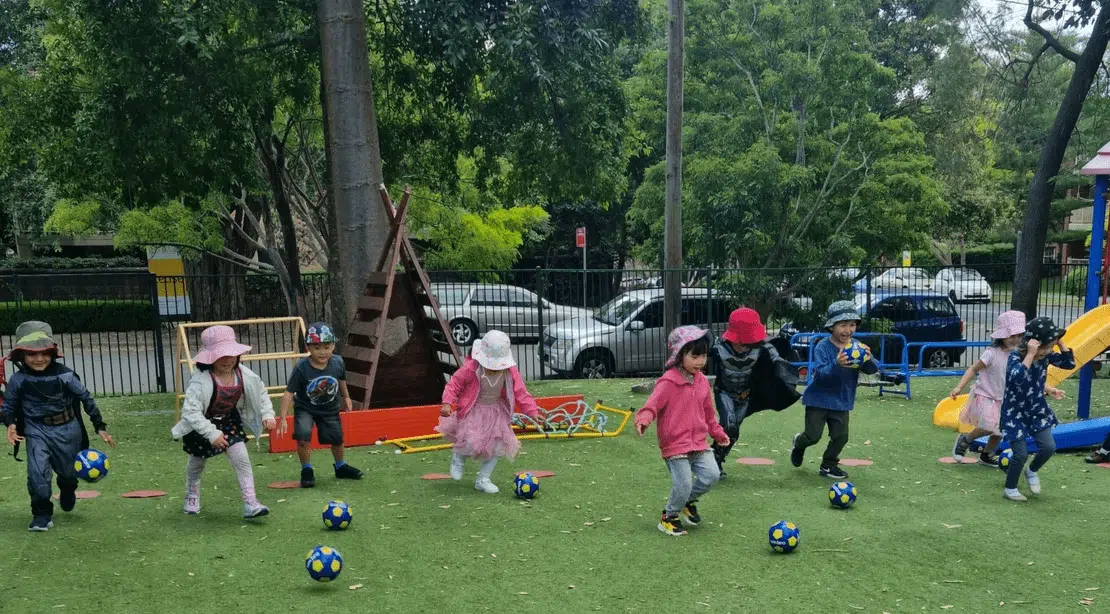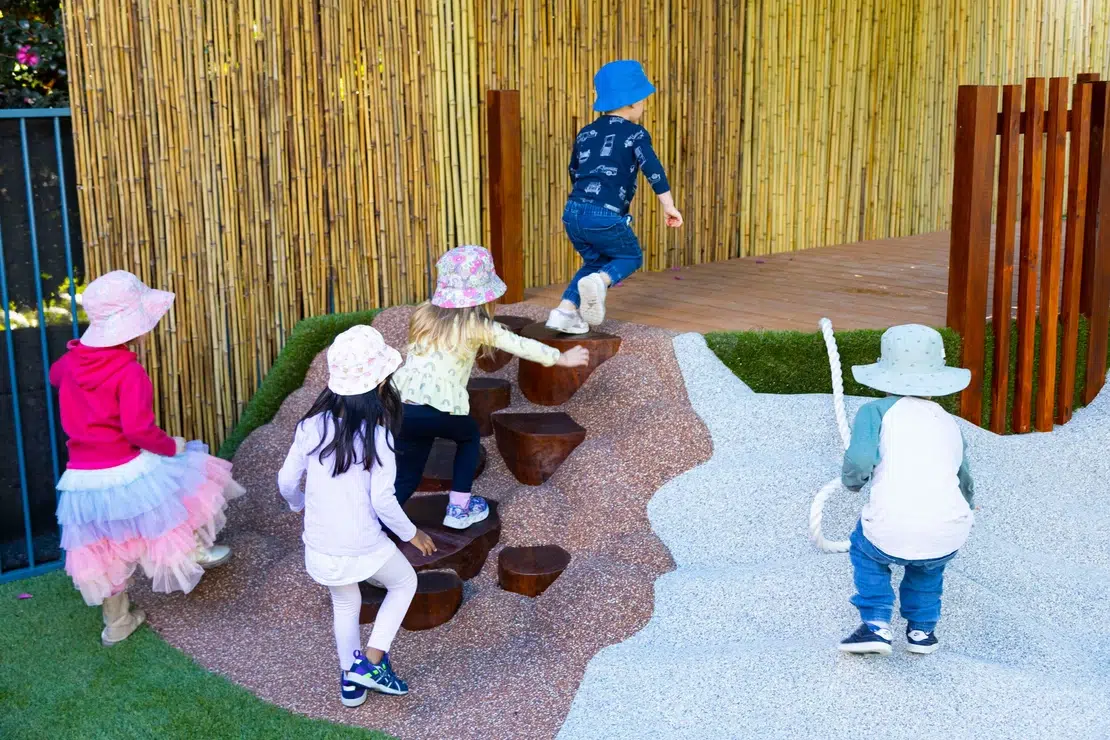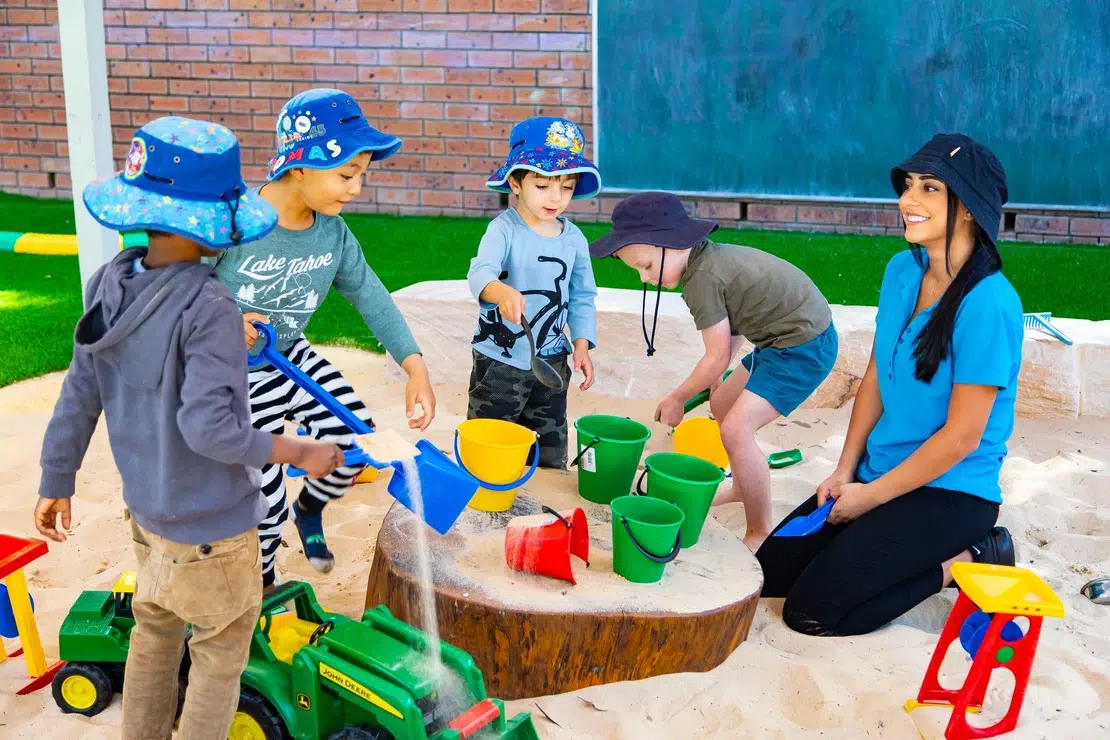You may have heard about our Heritage House Sports Club running the past few weeks, but do you know why we make exercise a priority in our programming? Physical activity is any activity that involves moving the body. It includes everyday activities, physically active play, and organised sports and exercise. The importance of physical activity in early childhood cannot be overstated. It is vital for young children’s health and development, including social, physical and mental well-being – laying the foundations for a healthy life.

For young children, physical activity means the opportunity to move around and interact with others. Physical activities should be integrated into young children’s lives to create a foundation of movement and activity that will stay with them, as it is well known that children who have higher levels of physical activity during their childhood are more likely to be active even after they mature. From a childcare perspective, it is imperative that a variety of physical activities be provided to cater for all tastes and to keep the child excited and motivated to continue being active. In early childhood, the biggest motivation for physical activity is play. It is crucial that we understand the critical role that play has in promoting physical activity in childcare and provide sufficient variety in it to not become too predictable. Finding play-based activities that engage and stimulate the child, while encouraging physical movement, should be front of mind in all childcare programming.
At Heritage House Childcare & Early Learning Centres, we provide a mix of indoor and outdoor opportunities for physical activity, including stimulating outdoor play areas such as pirate ships, gardens, climbing equipment, water pumps and slides. Outdoor play often provides more space and freedom for movement, allowing children to push their boundaries and interact with their peers. While having extra room to run faster, climb higher and jump further can lead to scrapes and falls, physical play helps children learn about their bodies and how to be resilient. Children who have been kept away from these experiences are more likely to get seriously hurt when they experience them for the first time as they age.

Risky Play involves experimentation, moving past boundaries and exploring the unknown, all without knowing what the final outcome will be – thus children are able to discover the limits of their own capabilities! Risky play in early childhood can help develop a child’s self-confidence, resilience, executive functioning abilities and even risk-management skills. Studies have also shown that engaging in risky play lessens the risk of injury.
Our Heritage House play spaces encourage Risky Play through our natural and engaging purpose-built environment. Risky Play is a natural part of play and partly responsible for children to further understand the world that surrounds them. It also allows them to experience important emotions, such as:
Firstly, physical activity improves balance, flexibility, coordination and strength as children age. From their first movements as infants, they are developing these necessary skills for everyday life. Secondly, regular exercise in children helps to achieve and maintain a healthy weight. Combined with a healthy diet, physical activity can reduce the serious risk posed by childhood obesity. Furthermore, physical activity benefits children’s social and mental wellbeing. It can help relieve stress and promote self-esteem, providing opportunities for social interaction amongst their peers, educators and family members at home. Exercise encourages their brains to work at maximum capacity by causing nerve cells to multiply, improving concentration and thinking skills. Additionally, physical activity assists in the development of gross and fine motor skills, which are important in everyday activities like writing, feeding oneself and buttoning a shirt. Lastly, exercising every day aids in forming regular sleep patterns in children. A well-rested child is an active child, and an active child is a well-rested child.
Infants (birth to 1 year)
Physical activity should be encouraged from birth, especially supervised floor-based play. At least 30 minutes of tummy time over the course of the day while awake.
Toddlers (1 to 2 years)
Toddlers should get at least 3 hours of various physical activities each day, including energetic play like twirling, running and jumping.
Children (3 to 5 years)
The more active play preschoolers take part in, the better. They should be active for at least 3 hours each day. This should include 1 hour of energetic play such as running, skipping and dancing.

Heritage House is thrilled to be able to offer our Sports Club program to our Heritage House families free of charge, in an effort to promote engagement, inclusivity and opportunities for physical activity for all children. For more information about our childcare services and how we include physical activity in our everyday programming, call your local Heritage House centre or contact us online.